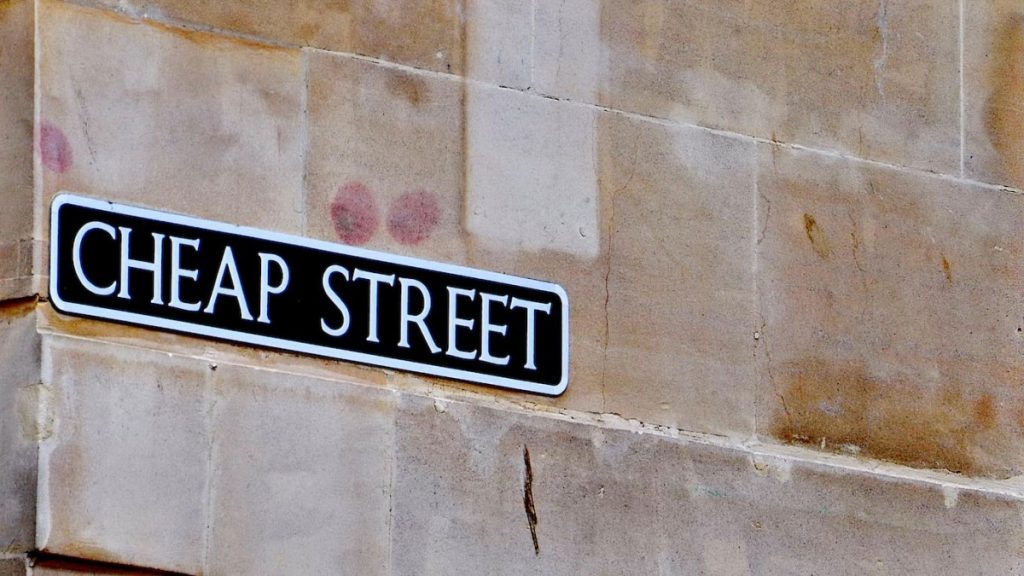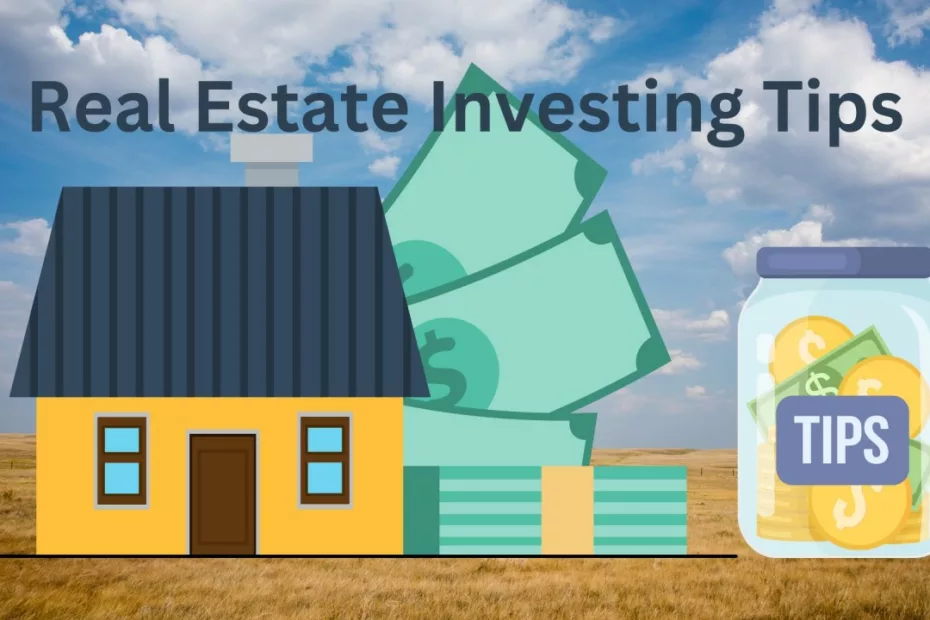This article will give you real-life tips, from an actual investor, on how to manage your real estate investing to generate wealth. I am an actual investor and have been doing this for 15 years.
I am not an author writing about a subject I’ve researched. I am not a large conglomerate with a team of advisors managing thousands of units. I am a mid-size real estate investor with 70 rental houses and flip a few homes each year. This is your chance to learn from my experience, and here are my top real estate investing tips.
1. Always pay less than market value

Of all the real estate investing tips, the number one is: never pay too much for investment real estate. You must know the market value of the property you buy and never pay market value for an investment property. Understanding how to determine property value is a crucial skill to cultivate, and don’t let a slick salesperson talk you into raising that value to make a deal work.
A real estate investor is not a gambler. A successful; real estate investor is not looking for speculative deals that may appreciate given the right conditions. A real estate investor assesses current value and then buys property at a discount to that value.
It’s not easy finding properties under market value, so you won’t be able to buy every property you see. You must hold out and only purchase great deals; a great deal is a house you can buy significantly below the market value.
If you stick to this rule, you will minimize many other problems you encounter on your real estate investing journey. You will likely become wealthy if you buy below market value and repeat this process, even slowly. In fact, if you properly buy just one property a year for 20 years, you will become a multimillionaire. To see how this works, read my article about what happens when you buy just one property a year.
Key Takeaway: You decide what you pay for a property. Don’t buy the property if you aren’t significantly below market value.
2. Cash Flow
No list of real estate investing tips would be complete without mentioning the cash flow. Cash flow is your money after paying all the costs to run your investment property. Even if you have outside funds to offset losses, sustaining a negative cash flow over many years is challenging.
The property must cover all its expenses so that you can continue to purchase properties and build your real estate portfolio.
Running your real estate investment business efficiently is vital for sustaining a positive cash flow. Still, how much you pay for the property is the primary tactic to ensure a positive cash flow.
If you spend too much on a real estate investment, you are stuck with that cost for decades. The property may appreciate and bail you out, but you have no control over market appreciation and must make your cash flow when you buy the property.
Any appreciation is just a bonus, and you should never rely on it for your investment strategy to be successful. For more information and paying the right price, check out my article about how much you should pay for a rental house.
When your cash flow is negative, you have to feed money into your business to keep it going, which causes financial hardships in other areas and will undoubtedly slow down your real estate investing. When your real estate produces a positive cash flow far over what’s needed, this passive income can fund additional investments or pull the money out for something else.
In all cases, it’s better to have a higher cash flow. I’ve never heard anyone say: “I wish that investment had made less money.”
Key Takeaway: You set your cash flow with the price you pay. Don’t buy the property if the price does not produce significant rental income.
3. Understand what it will cost

Owning investment real estate, specifically rental houses, comes with many costs. Frequently investors will massively miscalculate what it costs to own and manage a property. They think they have gotten a good deal, but the operating expenses are higher than anticipated, and their cash flow suffers.
New real estate investors often believe they are unlucky, but these expenses are common to all properties, and it’s a real estate investor’s job to know what these are.
Some expenses, like taxes and insurance, are known, while others will fluctuate, such as routine maintenance and additional repairs. Over time you will need to replace costly items such as the roof, the heating and air system, and eventually the pipes that run to the sewer system (most people forget about that one). On top of that, you may have debt service obligations if you purchase properties with a mortgage.
Studies have shown that the average operating expenses for rental properties are about 40% of the rent. This number is reasonably accurate over the long term for a single property, and for an extensive portfolio, it is surprisingly accurate each year.
For the best results, assume your expenses will be about 40% of the rent and set this aside each month. For more details on determining this 40% number, please look at my article about calculating operating expenses on rental properties.
Key Takeaway: Expenses are significant and will have a major impact on your bottom line. Make sure you know how to predict what this will cost.
4. Know your market
Knowing the real estate market where you are investing is extremely important. Both property values and rents differ between cities and from street to street in the same neighborhood. The local market values drive real estate, not the nationwide value you hear about on the news.
Estimating the market value of a property is much easier and more accurate when you have already studied the area. As mentioned in tip #1, you must know the market value of a property before you can buy it for significantly less.
Investors have massively overpaid for properties because they don’t know the local housing market. An older house in a small city will often be worth a fraction of a similar place in a major metropolis.
On many occasions, I have seen investors from a large city massively overpay for a home in a small city because it appeared to be a steal based on the values they were accustomed to. I have bought properties from these same investors when their business fails, proving the adage: Know your market.
Expenses are often higher in high-crime areas. You can mitigate this risk by avoiding that area or paying less for the property. However, you must understand the market to know the high crime areas. In addition, crime trends tend to change over time, so staying abreast of emerging trends is the best way to adjust your real estate investing strategy.
A key component of success when investing in rental properties is setting the rent correctly. Setting rent appropriately reduces vacancies and guides you in determining the purchase price. It isn’t easy to know the nuances of market rent unless you know the area where you are investing. For more about setting rent, please read my article that teaches you how to determine market rent.
Key Takeaway: Know everything about where you invest. Stay on top of property values, market rent, and crime rates.
5. Treat real estate investing like a business

This is a business, so you must treat it like a business. The real estate business is about numbers, not picking a paint color, redecorating, or being creative. If you enjoy those things, then have fun with them, but the numbers are what matters.
Don’t pass on a property because it needs a lot of work; figure out what it costs to fix the problems and work with numbers. Don’t go overboard on renovations when it doesn’t add value. And most importantly, value your own time and don’t do work for free to make a deal work.
The best deals are often houses no one else wants because of some problem. It could be termite damage, mold, or a considerable renovation. This should never deter you. These properties are the type where you can often find the best deals.
As a real estate investor, your job is determining the cost to remediate the problems and then trying to get the property for a price that makes that a workable deal. Turning down an ugly property in an emotional response is not how fortunes are made. Stick to the numbers.
Your business is investing in real estate, not swinging hammers and painting walls. Put your efforts into getting deals, and don’t do renovations or routine repairs yourself. You must treat real estate investing as a business, and as the CEO of this business, work on the big picture and leave the paintbrush to others. If you need to know more about why you should never do renovation work yourself, read my article about the importance of hiring contractors.
Key Takeaway: It’s all about numbers, so don’t make emotional decisions. Remember, work on your business and not for your business.
6. Don’t Over Rehab
When it comes to real estate investing, it’s essential not to over-rehab your properties. While improving the condition of a property is a good idea, going beyond the level of neighboring houses rarely adds significant value or justifies the additional costs.
Here are some key points to keep while renovating a house:
- Stick to the level of the neighborhood: Rehabilitating a property to the level of the houses in the neighborhood is a smart strategy. Going above and beyond what’s typical in the area may not yield a higher appraised value or attract more buyers or tenants. Understand the market and rehab your property accordingly to align with the expectations of potential buyers or renters.
- Avoid getting too creative: While infusing your personal taste and creativity into a property is tempting, remember that others may not share the same preferences. Keep in mind that real estate investment is not the same as designing your own home. Opt for more neutral and universally appealing choices that resonate with a broader range of potential buyers or tenants. For instance, expensive granite countertops may not be necessary for a property in a Class B neighborhood.
- Focus on the long run: Real estate investing is a long-term strategy. While making improvements to a property is essential, it’s crucial to consider the return on investment and prioritize repairs and upgrades that truly impact the property’s value and rental rates. Check out this cost vs. value calculator to find out what upgrades are worth doing.
By being mindful of the level of the neighborhood, avoiding excessive creativity, and prioritizing long-term returns, you can strike the right balance when rehabbing your investment properties. Remember, the goal is to attract tenants or buyers and maximize profitability without overspending on unnecessary upgrades.
Key Takeaway: Don’t splurge on the renovation. Only do what is absolutely necessary or has a positive ROI.
7. Delegate Non-Essential Tasks

Running a successful rental business requires prioritizing your essential tasks and delegating non-essential ones.
As a rental property owner, your primary focus should be on managing and growing your business. Avoid getting caught up in non-essential tasks that can consume your time and energy.
Instead of taking on maintenance tasks yourself, hire qualified contractors. They have the expertise to handle repairs and renovations efficiently, saving you time and ensuring the work is done professionally. Here is an excellent article on why you should not do maintenance work yourself.
Don’t hesitate to hire an attorney or seek professional advice when necessary. Investing in legal counsel is better than making costly mistakes by relying on online advice.
By delegating non-essential tasks, you can free up your time and energy to concentrate on the strategic aspects of your rental business, ensuring its long-term success.
Key Takeaway: Don’t waste your time on things you can delegate. Spend your time handling things that only you can do.
8. Know the tax laws
Understanding the tax laws related to real estate investing is crucial for maximizing returns and accelerating wealth accumulation.
A 1031 exchange is a powerful tool for real estate investors. It allows you to defer capital gains taxes when selling a property by reinvesting the proceeds into another property. By deferring taxes, you can preserve your investment capital and leverage it to acquire more properties, accelerating your wealth accumulation.
Tax laws allow you to depreciate certain parts of your investment property over time, such as the building structure and improvements. Depreciation can provide significant tax deductions, reducing taxable income and increasing cash flow. Some items like concrete, fences, and carpets may be eligible for accelerated depreciation. Understanding the depreciation rules and strategies can help you optimize the tax benefits of your real estate investments.
While it’s important to understand the tax rules, it’s wise to consult with a Certified Public Accountant (CPA) or tax professional specializing in real estate. They can provide valuable guidance, help you navigate complex tax regulations, and ensure you take advantage of all available tax deductions and strategies.
By solidly grasping the tax laws and leveraging strategies like the 1031 exchange and depreciation, you can minimize your tax liability, maximize your cash flow, and create a more profitable real estate investment portfolio.
Key Takeaway: Know the depreciation schedules and any special tax incentives. Profit after tax is the only profit that matters.
9. Don’t Use a Property Management Company

When managing your rental properties, it may seem convenient to outsource the management responsibilities, but there are important factors to keep in mind. This section will explore why relying on a property management company may not be the best approach for real estate investors.
One of the primary drawbacks of using a property management company is that they have little incentive to save money on maintenance and repairs. Since the landlord ultimately pays for these services, the management company may prioritize convenience over cost efficiency. This means they may not diligently seek the best deals or explore alternatives for necessary repairs.
Another important consideration is the value you receive from a property management company during months when no issues arise. While their involvement may seem worthwhile during tenant turnover, rent collection, or handling repairs, it’s important to recognize that in months without such problems, the value you receive may be minimal.
Instead of relying on a property management company, real estate investors can adopt alternative strategies that offer greater control and cost-effectiveness. Managing your rental properties yourself, especially when you have a limited portfolio, allows you to oversee all aspects of property management. This hands-on approach provides valuable experience and knowledge that can benefit your long-term success as an investor.
As your portfolio expands, you can consider hiring a dedicated employee as your property manager. This solution often proves more cost-effective compared to engaging a property management company. By hiring local employees, you can benefit from their familiarity with the area and ability to perform a broader range of services tailored to your needs.
While hiring a property management company may seem convenient, it’s essential to consider the associated costs and benefits carefully. By taking a hands-on approach, implementing effective management strategies, and staying informed, you can maximize the profitability of your rental properties while maintaining full control over their operations. Here are many more reasons to avoid a property management company.
Key Takeaway: Don’t use a property management company. Do it yourself to learn, and then hire an assistant.
10. Understand Financing Options
When it comes to real estate investing, understanding your financing options is crucial. The right financing strategy can make a significant difference in the success of your investments.
The three main financing options are:
- Traditional Mortgages: Traditional mortgages from banks or lending institutions are a standard financing option for real estate investments. These mortgages typically require a down payment and have specific terms, such as interest rates and repayment periods. Understanding the qualification criteria, terms, and interest rates associated with traditional mortgages is essential when considering this option.
- Commercial Loans from Community Banks: For larger investment properties, commercial real estate ventures, or once you have more than ten mortgages, community banks can be a viable option. Community banks often have local market knowledge and may offer more flexible terms than larger financial institutions. However, it’s important to conduct due diligence and compare loan terms, interest rates, and fees from multiple lenders to ensure you get the best deal.
- Hard Money Lenders: Hard money lenders are private individuals or companies that provide short-term loans secured by real estate. These loans are typically used for fix-and-flip projects or when traditional financing is unavailable. Hard money loans often have higher interest rates and fees but can offer faster funding and more lenient approval requirements.
While exploring financing options, exercising caution and avoiding so-called creative financing options is crucial, especially when starting out. Creative options like subject-to-deals, lease options, or seller financing may seem enticing, but they can be complex and carry significant risks. Inexperienced investors may find it challenging to navigate the legal and financial implications of these arrangements. Additionally, some options, such as owner financing, often lead to overpaying for a property.
When getting a loan for an investment property, staying informed about interest rates is essential. Interest rates can significantly impact your monthly payments and overall investment returns. Keep track of market trends, consult with multiple lenders or mortgage brokers, and compare offers to secure the most favorable interest rates.
Key Takeaway: Understand the financing options, and know the current interest rates.
Conclusion
I am a professional real estate investor who has made many mistakes over 15 years, but I don’t make those mistakes multiple times. I learn from my mistakes, and you should learn from my mistakes too. In this article, I shared the top real estate investing tips I’ve discovered and explained the reasoning behind the recommendations.
It’s important to note that there are different ways to invest in real estate, whether through commercial properties, apartment buildings, single-family homes, or vacation rentals. Each property type offers its own set of opportunities and considerations, so aligning your investment choices with your financial goals and risk tolerance is essential.
Successful real estate investing requires hard work, capital investment, and a strategic plan with clear goals. It’s crucial to stay informed about current trends, market conditions, and investment opportunities.
Conducting thorough due diligence, leveraging market research data, and seeking guidance from trusted professionals can provide valuable insights and help you make informed decisions. It never hurts to run your idea by trusted business partners, or even a financial advisor
Remember, real estate investment is a long game. It takes time to build a portfolio and see substantial returns. Patience and persistence are vital virtues in this investment terrain. By making informed decisions, leveraging opportunities, and staying focused on your long-term goals, you can achieve peace of mind and create a successful real estate investment portfolio.
Your goal should be to buy cash-flow-producing properties significantly below market value. Make sure you have an expert understanding of the market and know what expenses you will likely encounter. Throughout all of this, be sure to treat real estate investing as a business.




